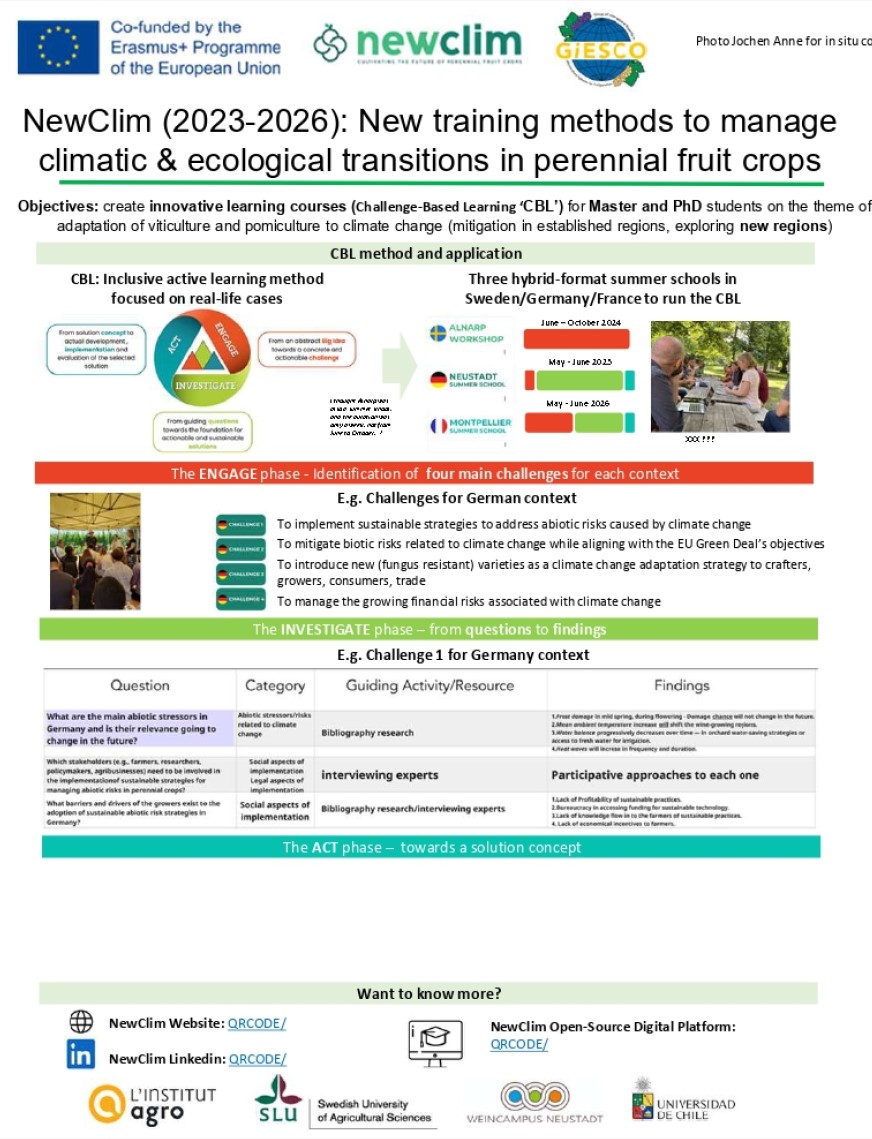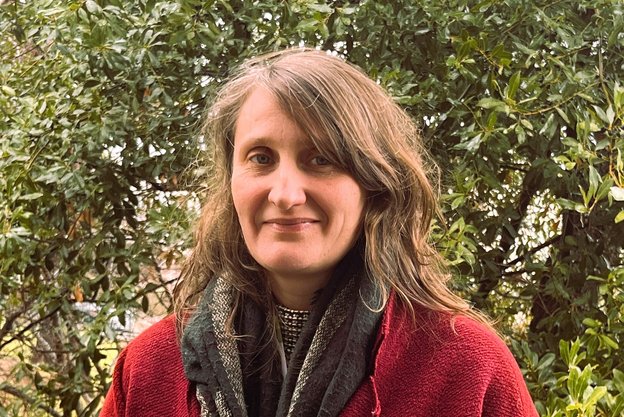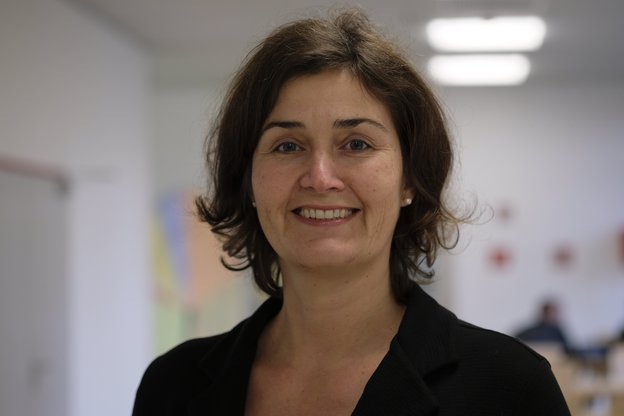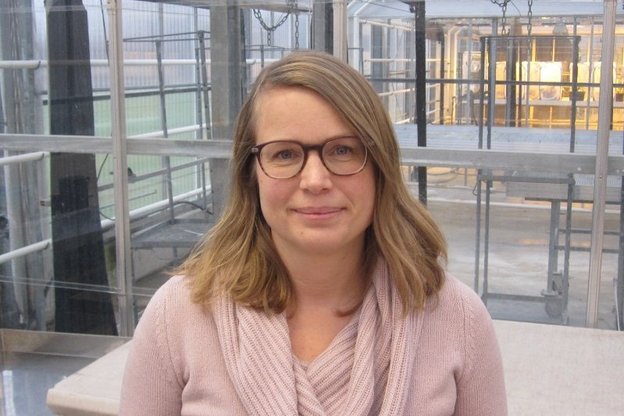NEWCLIM at the GiESCO Symposium 2025 in Geisenheim
The international GiESCO symposium was held at Hochschule Geisenheim University from July 27th to 31st, 2025. Under the theme “Above and Below – Towards the Future,” the congress featured presentations from researchers and professionals worldwide, showcasing scientific advances to address challenges resulting from climate change.
Members of the Erasmus+ NEWCLIM project — Dr. Anne Pellegrino (Institut Agro) and Dr. Jochen Bogs (Weincampus Neustadt) — attended the symposium and contributed to the exchanges. Poster sessions also provided space for sharing ongoing projects, including the presentation of the NEWCLIM project.
The discussions between NEWCLIM scientists and participants encouraged constructive debate on ways to enrich educational programs with innovative approaches such as those developed in NEWCLIM. These exchanges also laid the groundwork for future collaborations with international partners from cool-climate regions, which are at the heart of the NEWCLIM project.
NEWCLIM Summer School. Neustadt 2025: Empowering Students for Climate-Resilient Agriculture
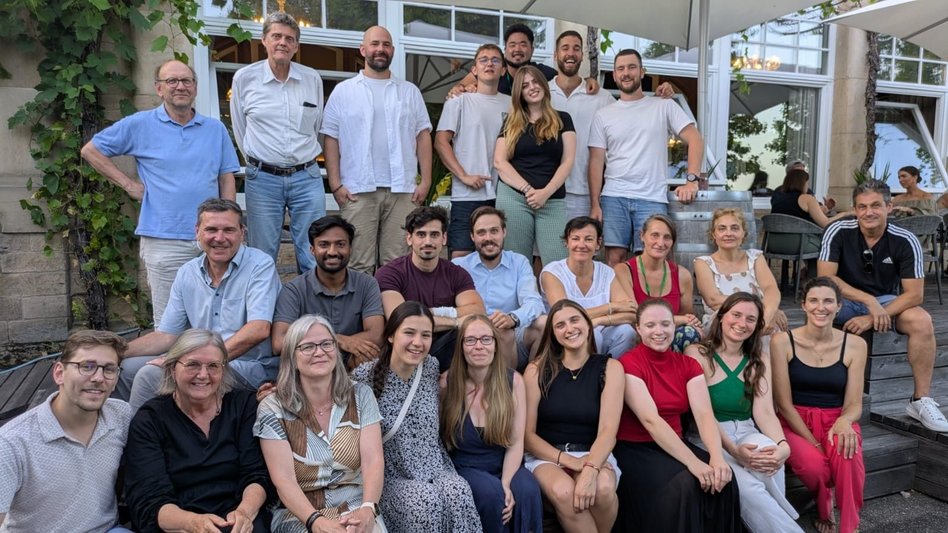
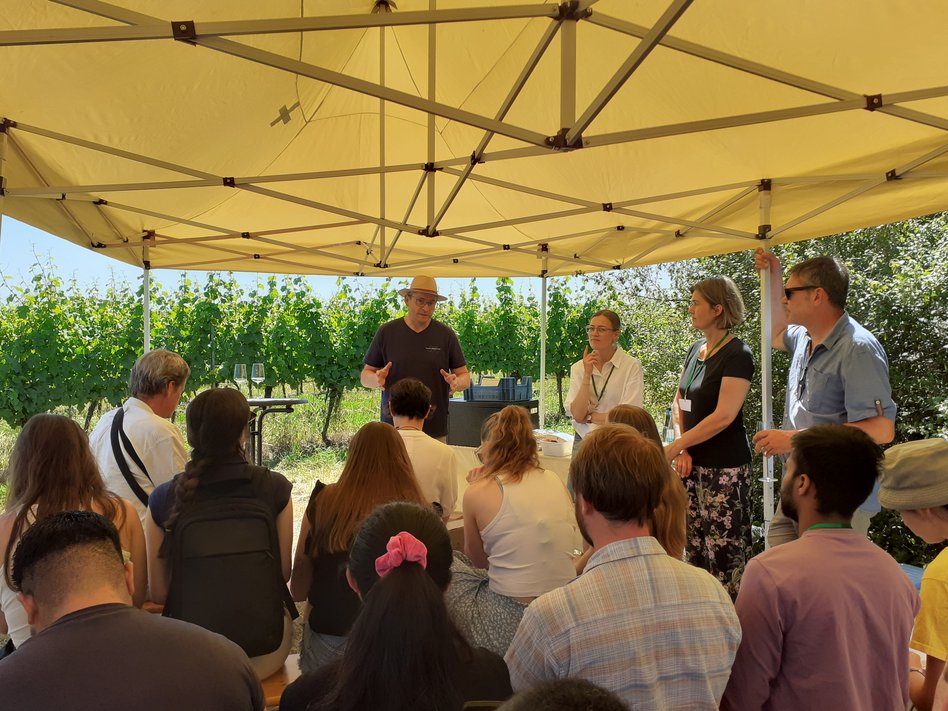
From June 23–26, 2025, the NEWCLIM Erasmus+ project hosted its annual Summer School in Neustadt, Germany. Twenty-two Master’s and PhD students from Europe and beyond joined forces to tackle real-world challenges in climate adaptation for perennial crops, focusing on viticulture and apple culture.
Following a Challenge-Based Learning (CBL) approach, participants worked in interdisciplinary teams on topics including:
Adaptive vineyard practices for extreme weather events
Pest management strategies aligned with the EU Green Deal
Adoption of fungus-resistant grape varieties
Mitigating the economic risks of climate change in wine production
Students presented their solutions in innovative formats — from podcasts to short videos — combining scientific rigor with creative communication. Field visits to local vineyards allowed participants to directly observe climate impacts on crops, while a public panel discussion engaged stakeholders, including policymakers such as MEP Christine Schneider, emphasizing support for sustainable viticulture practices.
The Summer School is part of the NEWCLIM Erasmus+ project (2023–2026), an international collaboration between:
Institut Agro (France)
Swedish University of Agricultural Sciences – SLU (Sweden)
University of Chile (Chile)
Wine Campus Neustadt (Germany)
Together, these partners are developing an open-access digital platform offering teaching resources on climate-resilient perennial crop management. The Summer School exemplifies NEWCLIM’s mission: combining hands-on learning, international collaboration, and innovation to prepare the next generation of agricultural leaders.
By fostering creativity, teamwork, and global perspectives, the Summer School equiped students to lead the transition toward sustainable and climate-adapted agriculture.
SIA 2025 - Paris - What a nice opportunity to introduce Newclim
In February 2025, the SIA Paris, the main national agricultural fair, took place.
During the event, Prof Torregrosa, head of Vine and Wine departement (PVV) of L'Institut Agro has discussed with other researchers the importance of the project Newclim to train the new generation of producers to adapt their practices in the context of climate change.
Thanks for the fruitfull forum !
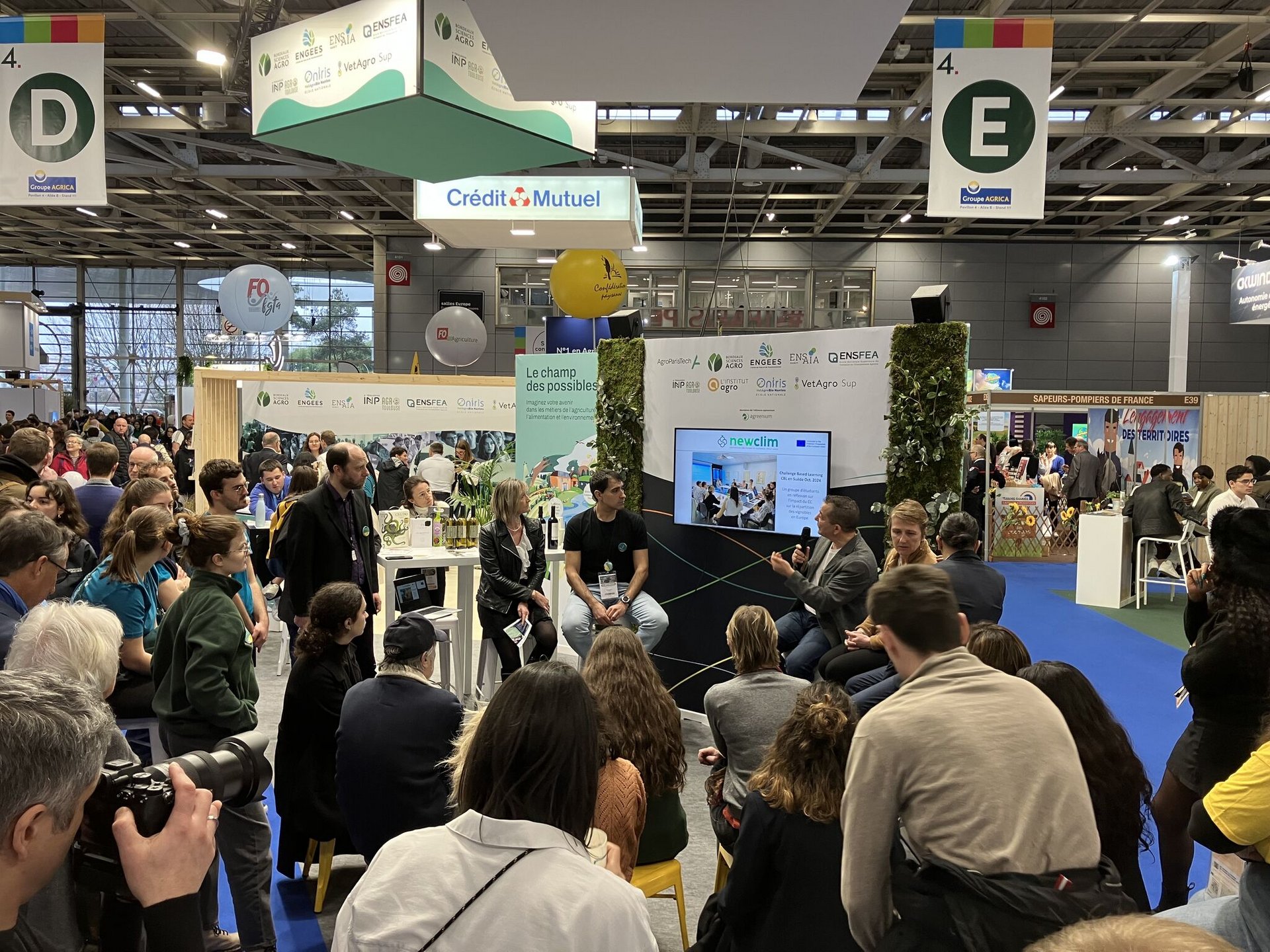
Newclim: CBL Training Angers 22. -23.01.2025
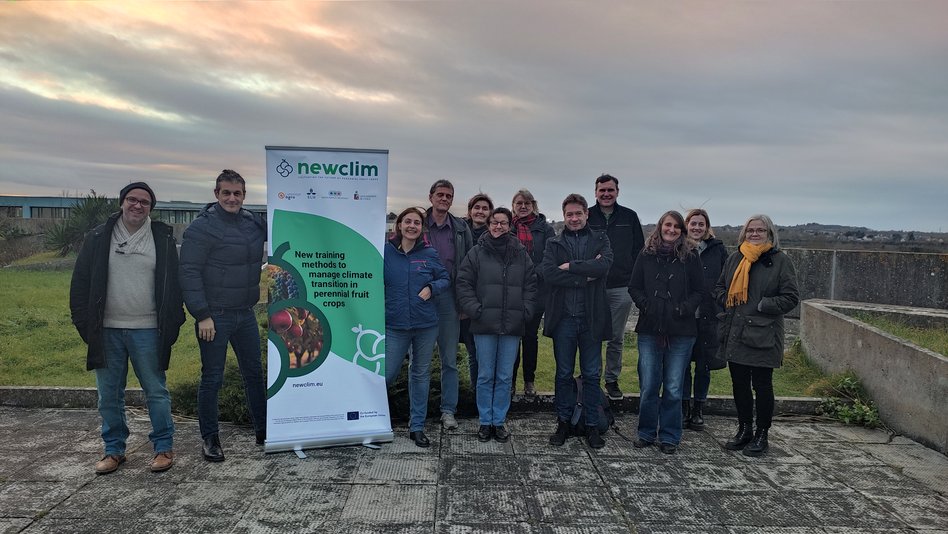
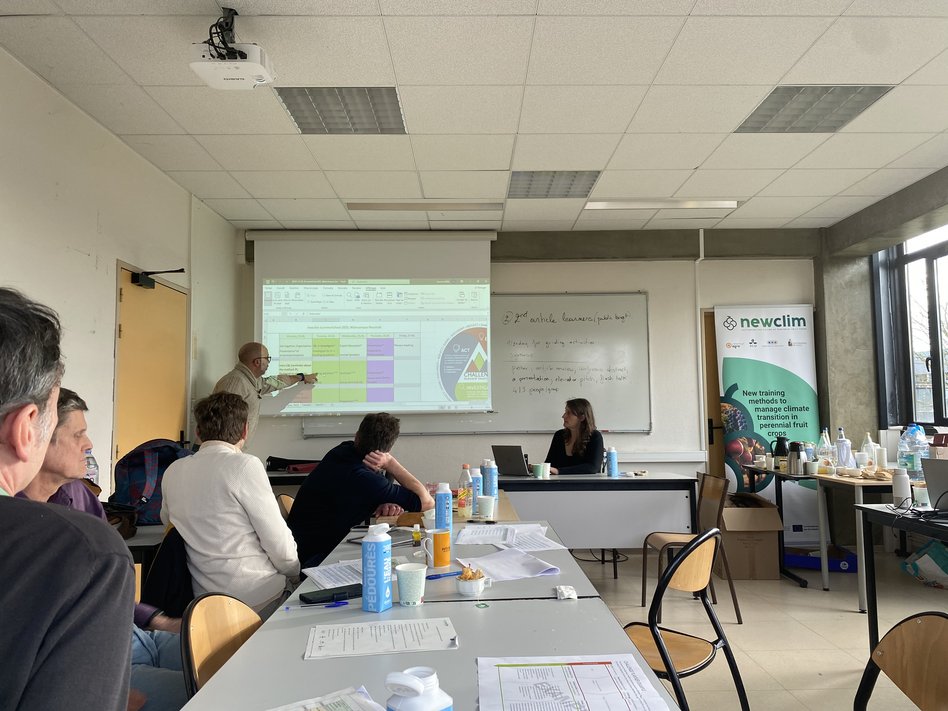
The newclim project partners met at the end of January for two days of methodology training at the Institut Agro (IA) on the campus in Angers.
The training for the 12 participants from France (IA Montpellier), Sweden (SLU Lund) and Germany (LUBS/Weincampus Neustadt) was organized by Dr Gerhard Buck-Sorlin (IA Angers). Invited speakers were Christine Vidal-Gomel and Thibault Chiron from the University of Nantes (CREN), who conduct research on learning and new methods such as Challenge-Based Learning (CBL) in the Department of Psychology. Christine Vandenkoornhuyse from the Pedagogical Support Centre, IA Angers was also present. Two experts, Anne-Hélène Deniau, IA Montpellier, and Marta Eggers, Wageningen University NL, who already have in-depth experience in the use of CBL, joined in online and shared their experiences and knowledge with the participants and were available to answer questions.
The objective of this training program was to equip the newclim team with essential skills to effectively use the CBL method as an innovative pedagogical tool. This tool will be applied and evaluated during the upcoming summer schools at Weincampus Neustadt (June 2025) and IA Montpellier (June 2026).
In June 2024, during the first newclim workshop at SLU in Lund and the subsequent Bar Camp, the Engage phase had already been carried out together with the invited PhD students (see article on https://newclim.eu/news-and-events).
The current training focused on the Investigate phase. The participants switched to the role of learners and, under the guidance of mentor Julien Rose, IA Montpellier, were instructed to formulate key elements, such as the necessary ‘Guiding Questions’.
Learning by doing provided valuable insights, highlighting the importance of formulating questions as precisely and clearly as possible. Additionally, it was possible to learn how the training graduates, in their role as future ‘mentors’, can assist participating students in crafting these guiding questions during future summer schools.
Two intensive days passed quickly, and it was a great enrichment for the European newclim team to have direct dialogue and contact in person besides the ongoing regular online meetings.
One participant reflected after the event: “I have learned how, as a mentor, I can effectively support learners in applying the CBL method in the future. It is crucial to maintain the method’s open approach.”
The newclim team now feels well prepared and is looking forward to organizing the first Summer School at Weincampus Neustadt during the week of June 23-26, 2025. Master’s students from Germany, France and Sweden will be invited to attend in person, with limited online participation available (see LinkedIn invitation).
NEWCLIM ERASMUS+ | SUMMER COURSE 2025 | CALL FOR APPLICATIONS
Students in Viticulture or Arboriculture, You Have Until February 28 to Apply for the “Newclim Summer School” in Neustadt, June 23-26, 2025

🌱 Join the Erasmus+ Newclim Summer School in Germany! 🍇🍏
Are you a Master's student in viticulture or arboriculture? Are you passionate about tackling climate change challenges in perennial fruit crops? Don’t miss this unique opportunity to participate in the Newclim Summer School 2025, taking place from June 23rd to June 26th at the Weincampus Neustadt, Germany!
Why Join?
Climate change presents significant challenges for perennial fruit crops such as grapevine and apple. These long-lived crops are slow to adapt to environmental fluctuations and are highly susceptible to pests and diseases. At the same time, there is an urgent need to reduce chemical inputs and adopt more sustainable farming practices. The Newclim Erasmus+ project aims to equip students with the knowledge and tools to develop resilient cropping systems using the latest scientific and technical advances.
The Newclim Summer School will be a dynamic learning experience, incorporating Challenge-Based Learning (CBL) to explore real-world problems and develop innovative solutions.
What to Expect?
During the Summer School, participants will:
- Engage in study visits and investigative activities to understand climate-related challenges in German viticulture.
- Work collaboratively to address key issues, including:
- Managing unpredictable biotic and abiotic constraints caused by climate change.
- Preserving traditional wine styles in emblematic varieties like Riesling.
- Introducing new grape varieties and assessing their acceptance.
- Reducing pesticide use while mitigating biotic risks.
- Ensuring long-term soil health.
- Sustaining oenotourism activities and their environmental and economic impacts.
- Enhance their skills by:
- Building a holistic vision of sustainable viticulture and arboriculture.
- Developing international and interdisciplinary research insights.
- Creating communication and training tools promoting sustainability.
Who Can Apply?
We are looking for:
👩🎓 6 students from Weincampus Neustadt
👨🎓 3 students from L’Institut Agro (France)
👩🎓 3 students from the Swedish University of Agricultural Sciences (SLU)
📅 When?June 23-26, 2025
📍 Where?Weincampus Neustadt, Germany
💰 Costs? Fully funded by the Newclim project (travel, accommodation, and meals covered).
How to Apply?
📩 Send your CV and a motivation letter (in English) with the subject “Application for the Newclim ONSITE Summer School” to Jessica Agnel (jessica.agnel@supagro.fr).
🗓 Deadline: February 28th, 2025
Don’t miss this chance to develop your expertise, network with international researchers, and contribute to the future of sustainable viticulture and arboriculture! 🌿🌎
The 2nd Wine Congress in Tokaj and the Newclim project
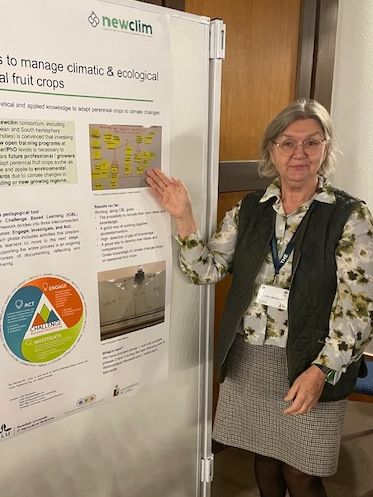
At the 2nd Wine Congress in Tokaj, Lotta Nordmark (SLU, Sweden) presented the NewClim project during a poster session, drawing significant interest from researchers and educators alike.
The congress, organised by Tokaj and Debrecen University in October 2024, gathered scholars and professionals from wine-producing regions worldwide. The discussions centred on research and practical knowledge, equipping participants with insights for a more resilient and holistic approach to viticulture.
“This was a fantastic opportunity to showcase how digital education and sustainability-focused pedagogy can support the next generation of researchers and professionals in perennial crop management,” said Lotta Nordmark.
Climate Challenges for Perennial Fruit Crops: Success of the 1st Bar Camp and working group on Vine and Apple Initiated as Part of the Erasmus+ NEWCLIM Project.
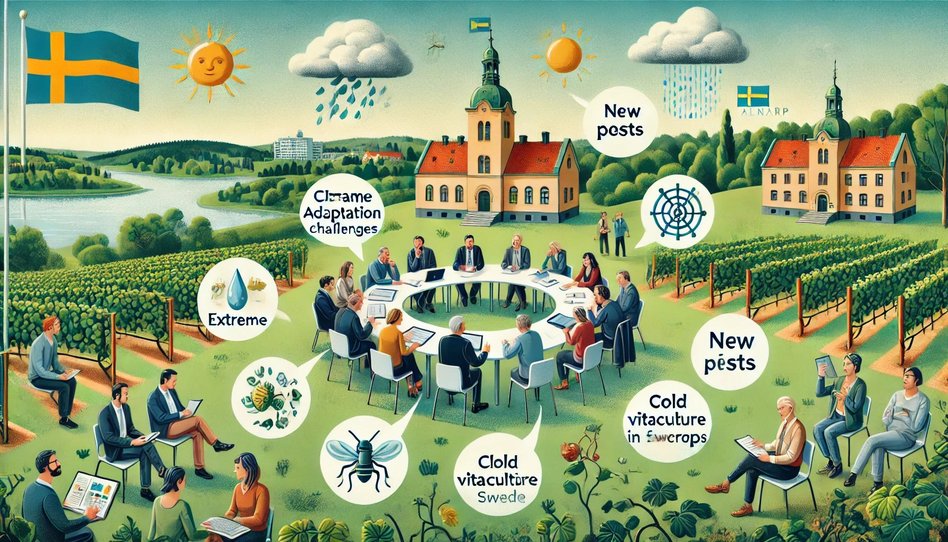
Last Thursday, October 24th, the Newclim team and PhD students from France, Germany, and Chile came together for an engaging online Bar Camp to discuss viticulture and apple cultivation within their respective national contexts. This meeting followed the group’s initial meeting in June at the SLU Alnarp campus in Sweden, where the groundwork for addressing climate challenges in perennial fruit crops was first laid.
The Bar Camp provided a platform for researchers from the partners universities to provide knowledge about local contexts of vine and apple in France, Germany, and Chile. Dr. Anne Pellegrino and Dr. Gerhard Buck-Sorlin, along with Patrice Lallemand from the Vine and Wine division of the Institut Agro, presented the context of the French vine and apple sectors. Dr. Jochen Bogs presented vine and apple context in Germany and Emilio Villalobos Soublett presented the Chilean context. The goal of this Bar Camp was to deepen the collective understanding of regional contexts and foster collaborative solutions.
Following step: a Collaborative Working Group to identify challenges in each country.
Following the success of the Bar Camp, a dedicated working group of PhD students gathered on November 27th to identify challenges raised by climate change and its impact on vine and apple in Chile, Germany and France. These challenges will be the basis for further development of CBL (Challenge-Based Learning) courses scenarios that will be developed in the Newclim Erasmus + project.
Key challenges identified:
Sweden:
How to adapt to extreme meteorological variation (extreme weather)?
How to tackle the issue of new pest?
How to build the know-how of cold viticulture?
How to get a more favorable context to adapt perennial fruit crops to climate change through communication?
Chile
How to grow grapevine and apple towards southern zones prone to cold and wet conditions particularly at flowering period?
How to adapt to arid area in the North?
What would be the business model continuing producing grape in North Chile ?
What would be the socio-economic impact of introducing new varieties for the exportation of Chilean wines?
France
How to reduce the use of pesticides and/or increase the efficiency of treatments while facing the evolution of diseases linked to climate changes ?
Which technological improvement to reduce the costs and make fruit/wine production more profitable for producers?
Towards more rapid and local breeding program for releasing new varieties/rootstocks adapted to the multiples abiotic constraints resulting from climate changes?
Is there any new business model (other than ones related to conventional/organic production) to limit the pollution while ensuring sufficient benefit for the producers?
Germany
How to face the cumulated and unpredictable biotic and abiotic constraints resulting from climate changes through management practices?
How to maintain the classical wine style produced from emblematic varieties such as Riesling?
How to introduce new varieties to anticipate the weather forecasts (winegrower and consumer acceptance)?
How to anticipate the biotic risks related to climate change and reduce the use of pesticides?
How to keep healthy soils in the long term?
How to keep the oenotourism activities and their environmental/economical repercussion for the area concerned?
Newclim Erasmus Project Summer Course
A success for the 1st Newclim seminar in Sweden.
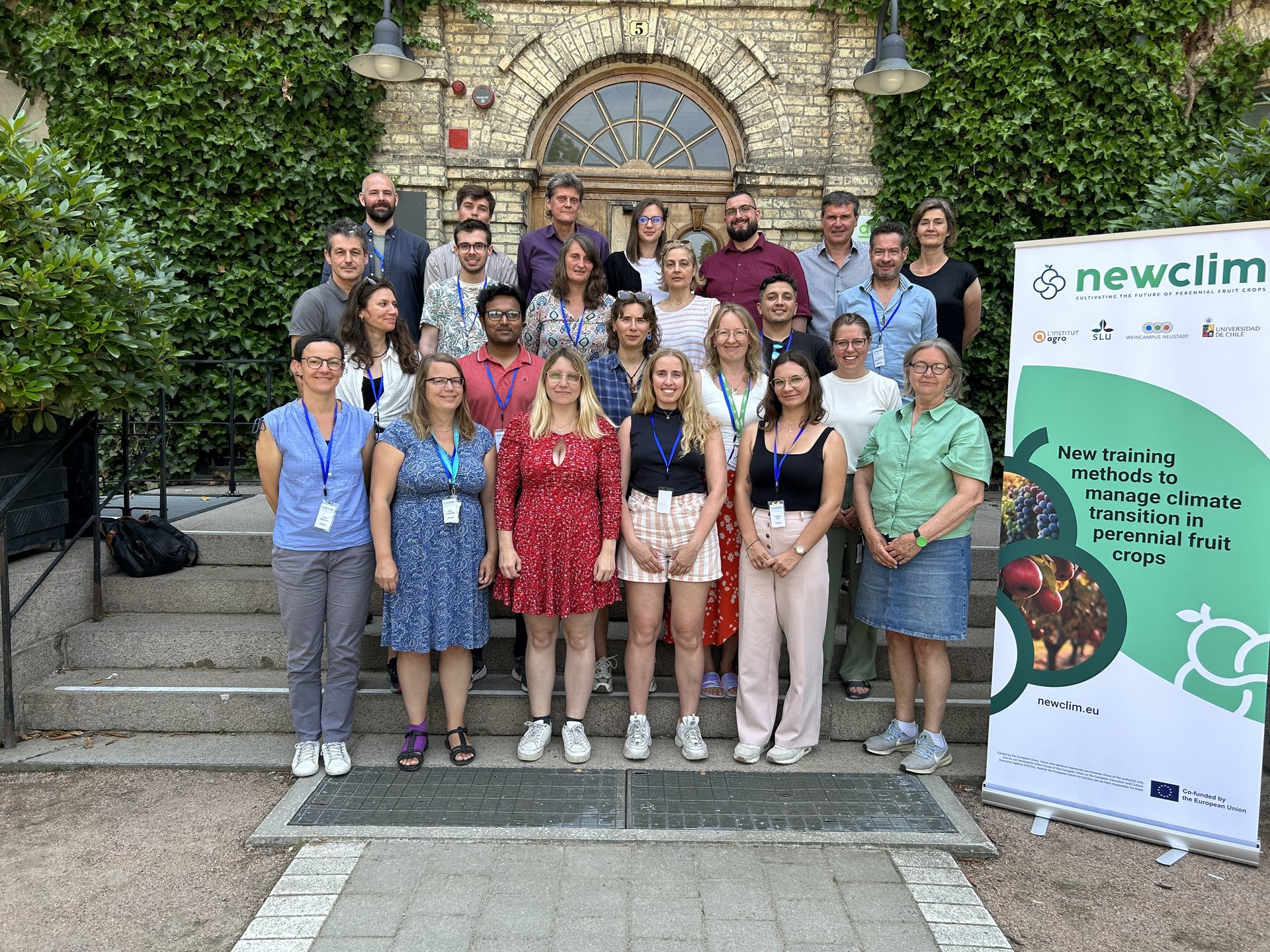
From June 24 to 27, 16 PhD and master students from the 4 partner universities of the Newclim project gathered on the SLU Alnarp campus (Sweden) in order to be part of a seminar aiming at developing challenge-based learning (CBL) activities. The participating universities are the Intistut Agro (France), the SLU (Sweden), the HochSchule Ludwigsahafen - Weincampus (Germany) and the University of Chile (Chile).
The CBL is an inclusive active learning method focused on real-life cases. This methodology aims at developing students’ problem-solving skills through challenges. This approach is based on a call to action and engagement. It will be experienced by master students next year in Germany.
During this seminar, the participants attended workshops run by university professors to define essential questions and challenges raised by the impact of climate change on perennial fruit crop production, especially vines and apples. The specific context of the Swedish production of apples and wine has been explored through farm visits, meetings with farmers and participation in the agricultural fair for professional farmers.
A central topic emerged from these discussions: the exploration of new regions of culture for the vine and the apple at higher latitudes in colder regions. This first Newclim seminar set the first step in the construction of the CBL’s (engagement step). In the coming months, it will allow us to develop a network of online resources accessible to master students who will attend the next steps of the CBL (investigation and action).
Three-day project meeting of the NEWCLIM consortium at the Wine Campus Neustadt.
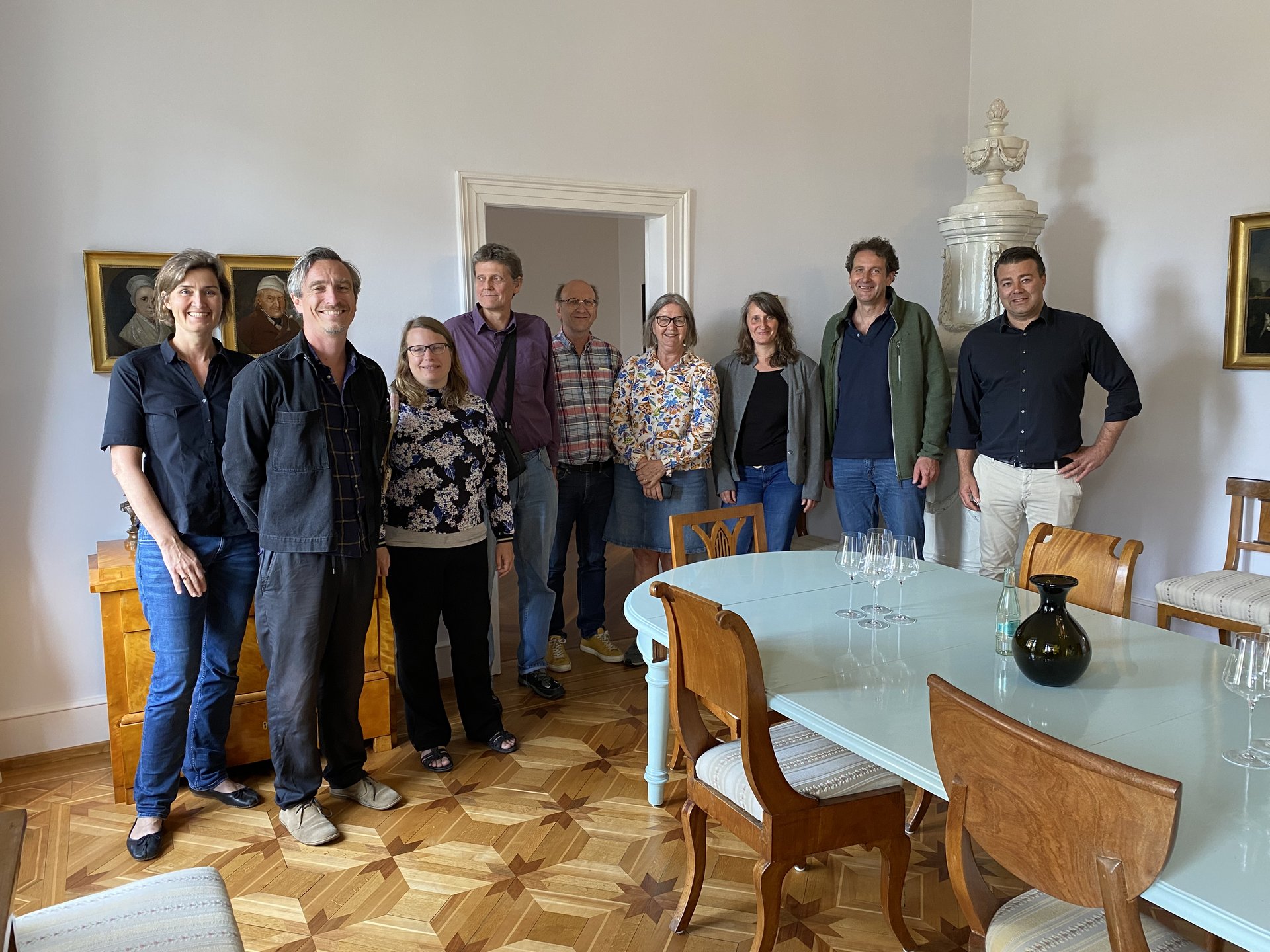
From May 29 to 31, the Neustadt Weincampus hosted a partner project meeting of the Erasmus + Newclim cooperation partnership. Professor Gerhard BUCK-SORLIN and Jessica Agnel (Newclim Project Manager), from the Intistut Agro (France), professors Lotta NORDMARK, Annie DROTTBERGER (horticulture lecturer and Project Manager), and Erik Alexandersson from the SLU (Sweden), and professor Dominik DURNER and Karin FRANZEN (Newclim Project Manager) from the HochSchule Ludwigsahafen - Weincampus (Germany), worked on the design of the future Newclim online platform about climate change and its impact on viticulture and apple production.
During these 3 days of work, besides visiting local ecological vineyards such as Rummel Biowein, Landau and Müller-Catoirthe partners brainstormed about the needs covered by the future Newclim platform and how they will be fulfilled through the latter.
2024: A new team for the Erasmus + cooperation project Newclim
Following the kick-off meeting of Newclim that occurred in Dijon in December 2023, Newclim’s team has grown up. Jessica Agnel joined the team in January as the general coordinator of the project. Jessica AGNEL was hired by the Institut Agro Montpellier to coordinate the implementation of Newclim. With a degree in European studies, she has been working as a European project manager for 12 years. All throughout her career, she has specialised in the fields of formal and non-formal education, social economy and entrepreneurship, citizenship, and interculturality.
She was followed by Karin Franzen who was hired in February to coordinate the Newclim project for the Weincampus Neustadt. Franzen holds degrees in oenology and beverage technology engineering from Hochschule Geisenheim University and also studied oenology at the University of Champagne Reims. In addition to several years in research project management with a focus on organic viticulture and knowledge transfer, she has practical experience in viticulture and oenology due to her family background.
Jessica and Karin joined Annie Drottberger to form the coordinating team for the Newclim project. Annie Drottberger is a lecturer and PhD holder in horticultural science, especially business administration, from the Swedish University of Agricultural Sciences, the Department of Biosystems and Technology in Alnarp, Sweden. Her PhD project involved the adoption of knowledge and innovations in sustainable horticultural production systems.
December 2023 - A successful kick off meeting of the Erasmus Newclim project
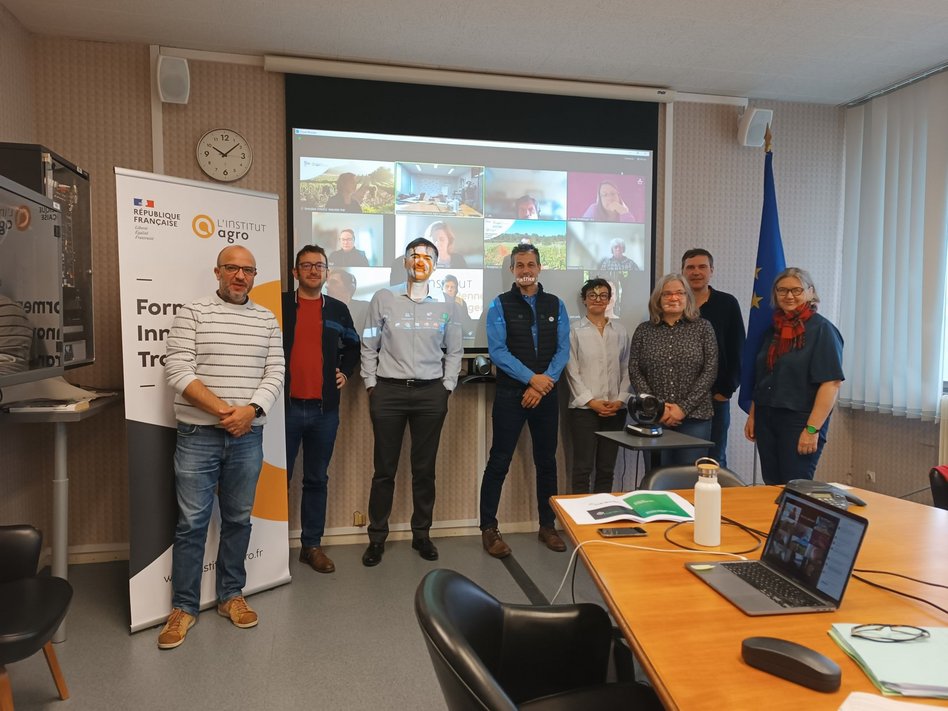
A successful kick off meeting of the Erasmus Newclim project:
“New trainings to manage climate & ecological transitions in perennial fruit crops“ The first conference of the Newclim project, an education initiative co-funded by the Erasmus+Programme took place on the 11& 12th of December at Institut Agro Dijon (France).
Climate change poses a significant challenge to agriculture and specially to perennial fruit crops such as grapevine and apple. Indeed, the long lifespan and the duration of the cycle of production slow down the adoption of new varieties and/or the improvement of cultivation management methods to adapt to environmental fluctuations. In addition, these crops are highly susceptible to a range of pests and diseases, while there is an imperious society demand for a reduction of inputs, particularly of phytosanitary compounds. In this regard, new educational programs are needed to train undergraduates and graduates, but also professional players, about how to run more resilient cropping systems integrating up-to-date scientific and technical advances.
The Newclim project aims at enhancing cooperation between EU universities from France (L’Institut Agro - IA), Sweden (The Swedish University of Agricultural Sciences - SLU), Germany (Weincampus Neustadt, Ludwigshafen University of Business and Society –LUBS) and partners from Chile (The University of Chile), with a focus on how to integrate the climate transition and smarter practices in the agricultural sector, focusing on two major economic value fruit crops. The project will be dedicated to the production of a digital platform displaying open source educational materials. Those educational materials will be fed by research resources on the topic issued from the scientific and educational activities of the four universities.
Newclim will also develop students' and staff's digital competencies through e-learning opportunities and disseminate the final deliverables to a broad audience. Throughout the project’s kick off meeting, participants reviewed the project goals and expectations of the different stakeholders with respect to the project outcome. The five work package (WP) leaders (P. Lallemand & C.Tarragon – IA, D. Durner & J. Bogs– LUBS, L.Nordmark– SLU) also presented the content, objectives, activities and tasks that will be planned over the next months.
